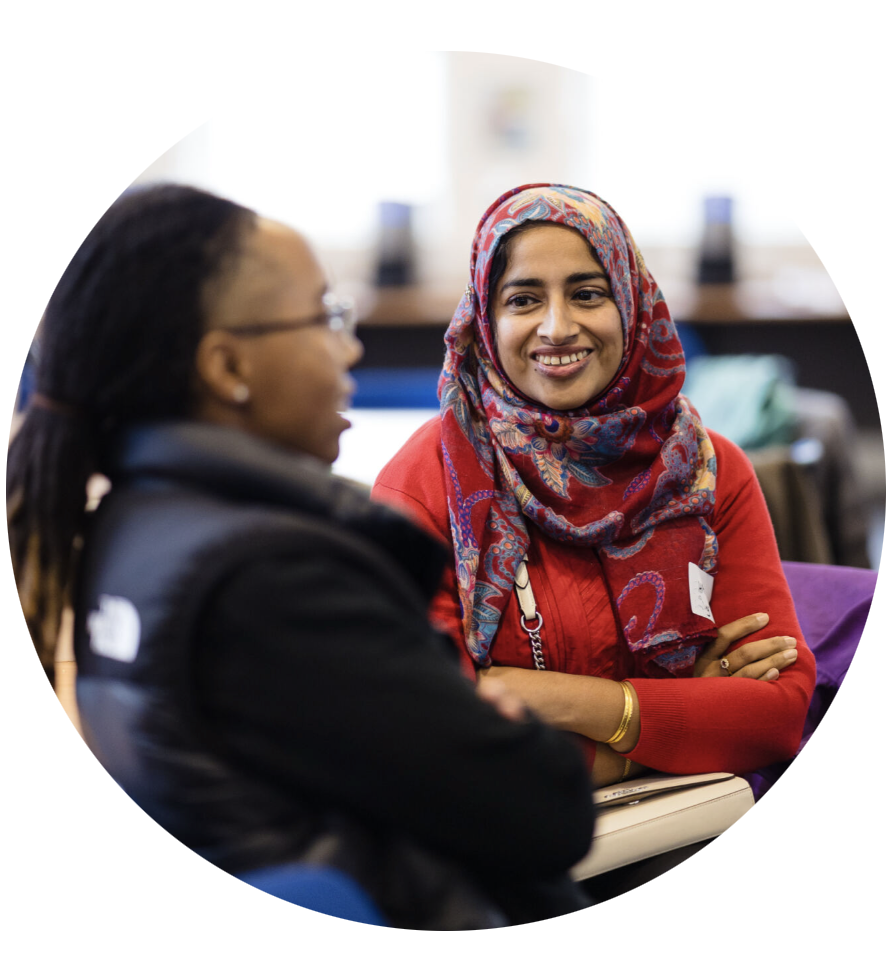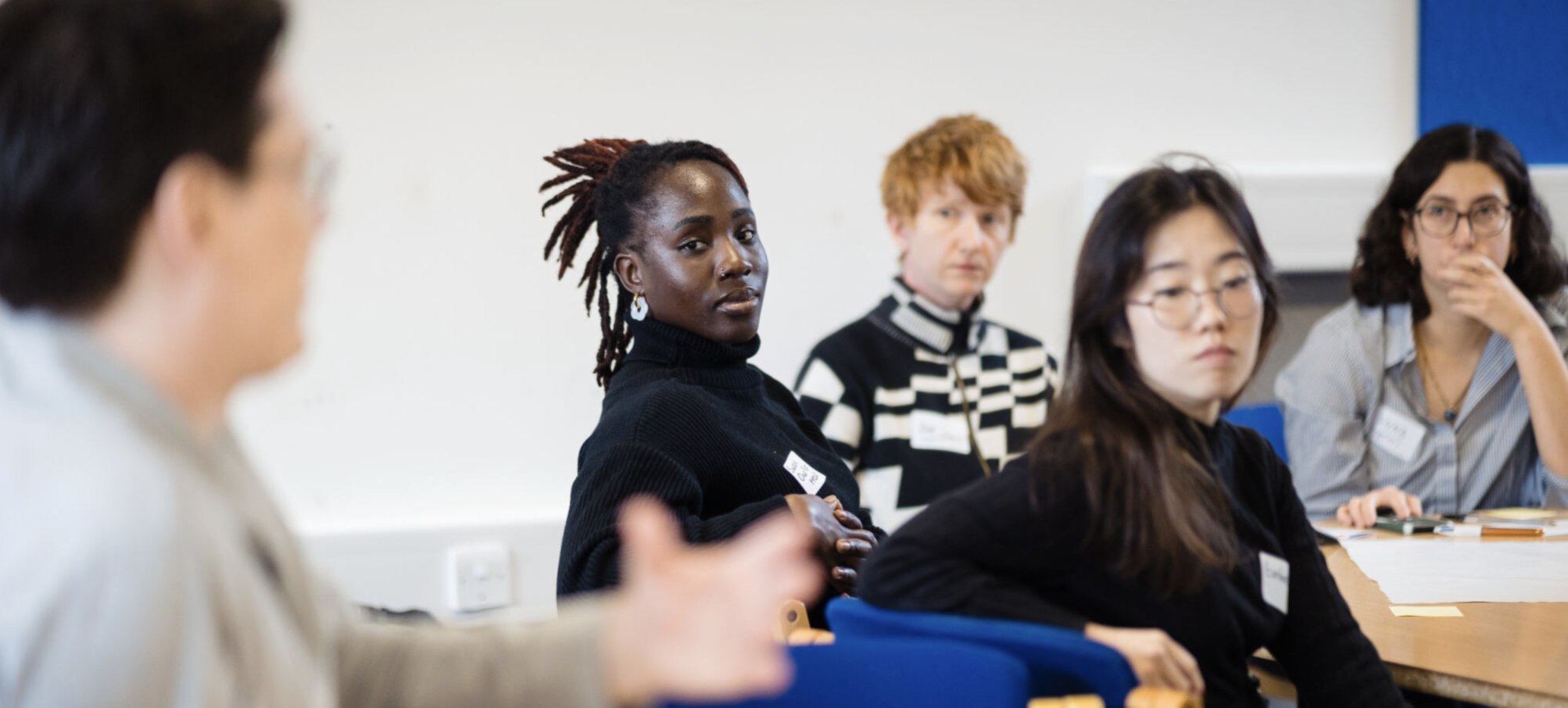
Tower Hamlets Health Determinants Research Collaboration (HDRC)

What is the HDRC?
The Health Determinants Research Collaboration (HDRC) is a partnership between the council, universities, voluntary and community groups and local residents. It aims to create a culture of ensuring that research and evidence inform local policy and decision making. By connecting people and organisations across Tower Hamlets, it ensures that research addresses local health concerns and has a real impact on the community.
The partners in the Tower Hamlets HDRC are Tower Hamlets Council, London Metropolitan University, Queen Marys University, University of East London, and THCVS.
Opportunities to get involved
We believe the best research happens when local people, practitioners and policymakers work together. There are many ways to take part - from community workshops and research discussions to co-design sessions and events.
Upcoming opportunities
We’re looking for residents to join our HDRC Resident Communications Panel!
Are you passionate about improving health in your community? Do you want to help make council communications clearer, more engaging, and more impactful? The NIHR Health Determinants Research Collaboration (HDRC) in Tower Hamlets is inviting eight residents to join a new Resident Communications Panel. This is an exciting opportunity to influence how we share information and connect with people across the borough.
More information about this opportunity can be found here. For more information and how to apply please contact alison.robert@thcvs.org.uk.

VCS Bursary to take part in HDRC Research Skills Training programme
The Tower Hamlets Health Determinants Research Collaboration (HDRC) will be launching a year long training programme aimed at supporting non-academic professionals to learn research skills and incorporate research into their work.
This training programme will work with a cohort of LBTH officers to support the integration of research evidence, including research generated by the local community, into decision making in the council. The HDRC is offering 2 bursaries to voluntary and community sector organisations to allow a member of their staff to complete the training programme alongside the LBTH officers.
The programme will cover a curriculum of core research skills, including modules based around:
- Finding and evaluating sources
- An introduction to social science research methodologies
- Research ethics and integrity
- Using data analysis and visualisation to make decisions
It will begin in January 2025 and will involve an estimated 8 hours a month training and study time. The bursary will cover these hours at a cost of £30 per hour. For more information please contact sam.crosby@thcvs.org.uk–
Past events
Hidden Voices in Research 24th September 2025
The public involvement partners of THCVS, London Metropolitan University , Queen Mary’s University and University of East London collaborated to create a programme called Hidden voices in research which brings together academics, voluntary sector and community researchers to network and learn about the exciting opportunities to connect and learn.
The programme wants to bring people together from across the universities and the voluntary sector to build connections that will enable the development of research proposals that support and address local health concerns that will benefit the residents of Tower Hamlets. That will create the culture change that puts resident voice through research central to impacting on policy in the local authority and service design and delivery in the health services.
Presentations made at the event:
- Evaluating Physical Activity Programmes for People with Long-Term Health Conditions – Raymon Hunte r.hunte@londonmet.ac.uk (link here).
- Child-Led Health Initiatives Using STEM to Prevent Type 2 Diabetes in Ethnic Minority Children (Ages 9–12) Rena Meimaridou e.meimaridou@londonmet.ac.uk. (link here).
- Not F**king sorry! Film event – Liselle Terret L.Terret@uel.ac.uk. NFS! rejects the continual scapegoating and the pity model of disability and reframes and re-performs institutionalised popular culture including Children in Need, TV game shows, ableist stand-up comedians to expose the systems of epistemic injustice that fuels society’s toxic ableism: discrimination, trauma and shame link here).
- Access Denied: The Struggles of Young Black Men in the Healthcare System – Photovoice Project Summary -Young Black men’s collective Said Abdifatah said@ybmresearchcollective.org (link to report) – (link to findings)
Update on progress with housing theme of the Tower Hamlets Health Determinants Research Collaboration (HDRC)
The London Borough of Tower Hamlets is one of four London Boroughs to have achieved the status of a Health Determinants Research Collaboration (HDRC) council, meaning that it has funding to undertake research into those areas known to have a major impact on our health. On achieving this status, the Council proposed that research on housing be prioritised. Housing is a major determinant of health, and whilst quite a lot is already known about the ways in which it can impact physical, mental and social health (both positively and negatively), less is known about what local authorities can do to mitigate some of the negative impacts. The council’s proposal to focus initially on housing was well received at a series of consultation events with residents.
There has been much progress in recent months with narrowing down the selection of possible research topics and questions to be taken forward locally around the priority theme of housing. A piece of work was completed to review what we know already about housing and health (and therefore do not need further research to repeat), as well as to outline the key housing and health challenges facing Tower Hamlets and the progress the local authority has made against existing policy recommendations around housing and health. This piece of work led to a series of high level areas of research interest being proposed for discussion at two workshops held in March. The workshop involved representatives of VCS organisations as well as housing colleagues and academics from partner institutions and generated a huge amount of discussion and debate about where Tower Hamlets should focus its research resources. As a result of these discussions and suggestions made, the proposed areas of research interest were amended. For example, participants felt that the topic of temporary accommodation should be expanded to homelessness in general, that barriers to private sector housing and shared ownership were well known and should be removed, and that opportunities to influence affordability of housing were limited and this should also be removed. Workshop participants also highlighted carers as a specifically vulnerable group. Workshop participants went on to discuss and vote on specific research questions that need to be answered locally. The result is a shortlist of potential research questions, several of which would benefit from community engagement, others which are more appropriate for a desktop review (ie of international research evidence) or analysis of existing data.
The next stage is for the Council to make decisions on which should go forward in the short and medium term. Once the shortlist of potential research projects has been prioritised, this will be communicated further with a view to discussing how best to engage local residents in appropriate projects.
To find out more, contact Alison Robert via alison.robert@thcvs.org.uk or HDRC via hdrc@towerhamlets.gov.uk.

Photographs by Photographer London .
